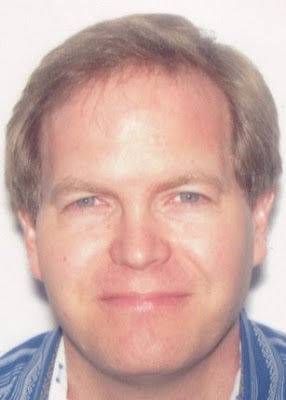To aid the DPCC Precinct Chairs in selecting the best qualified candidate for the county chair position, the Democratic Campaign Development Coalition (DCDC) has invited the candidates to answer questions at the group's July 14th general meeting, said DCDC spokesperson Linda Magid.
DPCC chair candidates Shawn Stevens, Victor Manuel and Marlene Byndon have agreed to participate in this candidate's forum.
All DPCC Precinct Chairs have been invited to attend this meeting. Rank and file Democrats in the county are welcome to attend this meeting, as available seating allows, however, DPCC Precinct Chairs will be given first preference for the available seats.
Because this special election cycle is so short and because time during the DCDC candidate's forum on July 14th is limited, DCDC has submitted fourteen key questions to the candidates. These fourteen questions ask the candidates to reflect on several different aspects of the local party's organization and potential to help elect Democrats for Collin County, statewide and national offices.
The candidates will be asked only a few of the fourteen questions during the candidate's forum discussion on July 14, according to the DCDC spokesperson. The questions will be selected and asked by forum moderator, David Smith. Mr. Smith, is a precinct chair in the county and a long time activist with the DPCC. During each question round the forum moderator will ask each candidate to answer a selected question. The candidates will be allowed by the moderator to specifically answer the question asked, or respond to another candidate's answer given in that round.
The DCDC has asked the candidates to return written answers to the fourteen questions by July 14. According to the DCDC spokesperson, the candidates' full written answers will be made available to the DPCC precinct chairs following the discussion forum.
Questions submitted to the candidates by DCDC are as follows:
Leadership
- Define your leadership style and explain how it fits into your vision of leading the party.
- Tell us how you would structure the party under your leadership and how you will recruit, train, work with and retain your executive committee of precinct chairs and committee chairs. What principles will guide you in recruiting and selecting volunteers, in particular for officers and committee chair positions?
- Party members would like the party to be more inclusive and open. What, if any, changes would you make to recent county party leadership practices?
- There are several active Democratic groups, such as the Democratic Campaign Development Coalition, Obama Collin County, Texas Democratic Women of Collin County, Stonewall Democrats, etc. Describe the kind of coalition--building relationships you will form between the Party and these organizations.
- We have highlighted for you the draft strategic plan for the Democratic Party of Collin County and we know that you have participated in drafting it. In your vision for the party, do you agree with the goals set forth? Is there anything you would change? How would you implement it?
- What are your plans in the next several months for 2010 candidate recruitment and development?
- What are your plans to help state-wide and local Democratic candidates get elected? Will your plans include reinstating the party’s Coordinated Campaign Committee?
- We are aware the demographics of the County are changing as we grow; and we are aware there is an untapped and diverse citizenry who historically vote as Democrats, as seen in the recent election. What are your plans for outreach to these voters?
- We recognize the need to raise funds for running the party, for the Primary, the county convention, helping get Democrats elected, developing IT infrastructure and paying for staff. What is your plan to ensure adequate funding for the party?
- The coming Democratic Primary and County Convention are solely the responsibility of the party. What is your plan for administering them?
- What will you do to ensure coordination and smooth operations between the Party and the County Elections Office regarding all election activities?
- How will you use all of the technologies available today to meet our goals? What will be your approach towards making any improvements?
- We understand there is a Texas Democratic Party County Chair Association. Do you plan to take time to travel to Austin to participate in this association’s events, learn about best practices, and make an effort to implement improvements in our County?
- If you don’t win this election, how do you anticipate working with the new county chair? If you do win the election, how are you going to bring the other two candidates and their supporters into the fold?








